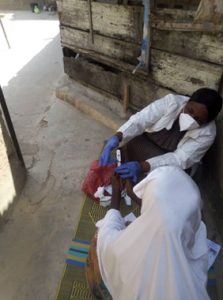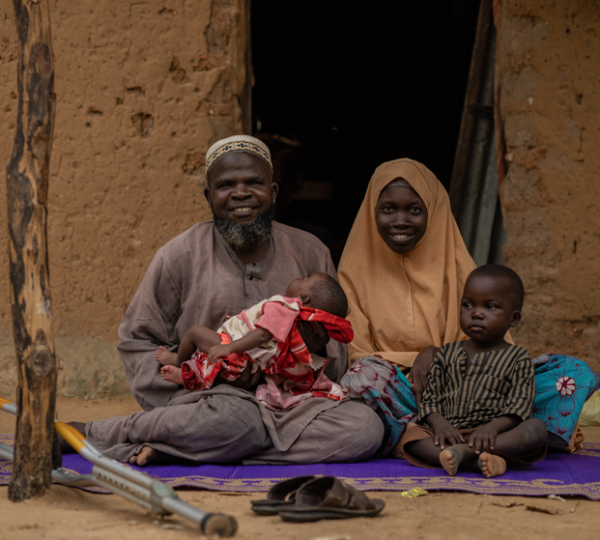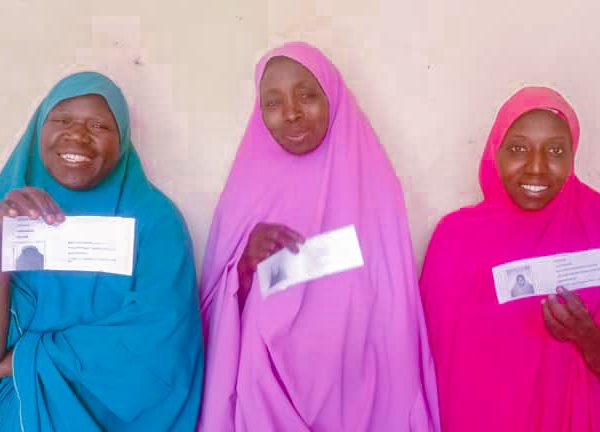Putting the power of knowledge back in the hands of the people through HIV Self-Testing (HIVST)
By Bala James Buba

Mariam (pseudonym), 28 years, is a female sex worker in Bolari west, Gombe. She sells food during local market days in Kurungu, her community. Mariam, who is recently divorced was once married to Bello a 38-year-old driver.
Mariam’s first contact with the intervention was during one of the regular awareness creation sessions/campaigns by community facilitators (CF) on the GF NAHI grant. After listening to an enlightening session from the team on the benefits of knowing your HIV status, Mariam realised she had not been tested for HIV in a long time and expressed her wish to know her HIV status. She was properly counselled, tested for HIV and was found to be reactive (HIV positive). The test result was quite devastating to her but following proper post-test counselling and support from the Case manager and community ART team, she made an informed decision to commence ART and disclose her status to her last sexual partner (Bello).
After several unsuccessful attempts to reach Bello on the phone to disclose her status to him, Mariam asked the CF if there was another way to get her partner tested. The CF informed Mariam about sexual network testing, showed her how to conduct the test using a HIVST Kit and provided her with Kits. During the counselling session, Mariam was also assessed for Intimate Partner Violence from her partner but there was no history of such.
Mariam’s community is close-knit, and she was privy to the knowledge that Bello had remarried and so she gave the HIVST Kits to them. After getting a reactive result with the Kit, the new wife reached out to Mariam for further guidance and support. Mariam counselled the second wife to get a confirmatory test in a facility of her choice and recommended the OSS in Gombe. After getting a confirmatory test, she commenced treatment at the State Specialist hospital. Following the new knowledge of her status, the new wife decided to delicately broach the need to get tested on Bello. He was sceptical about getting the service in any health facility as he did not want any members of their small community to be privy to the details of his health status. This prompted her to offer him HIVST. Following a positive result from the HIV Self Testing kit, she also encouraged Bello to visit any health facility of his choice to get confirmatory testing which he did. He has also commenced treatment at the same facility where his wife is currently assessing care. Bello said, “I would have been accusing my colleagues or family members of witchcraft if not for having this firsthand knowledge’’.
Mariam also followed up with them and their case managers at regular support group meetings. She expressed her gratitude to the team for the intervention in the state because without it, she wouldn’t have known her status, commenced treatment or shared the important information with Bello and his new wife.




